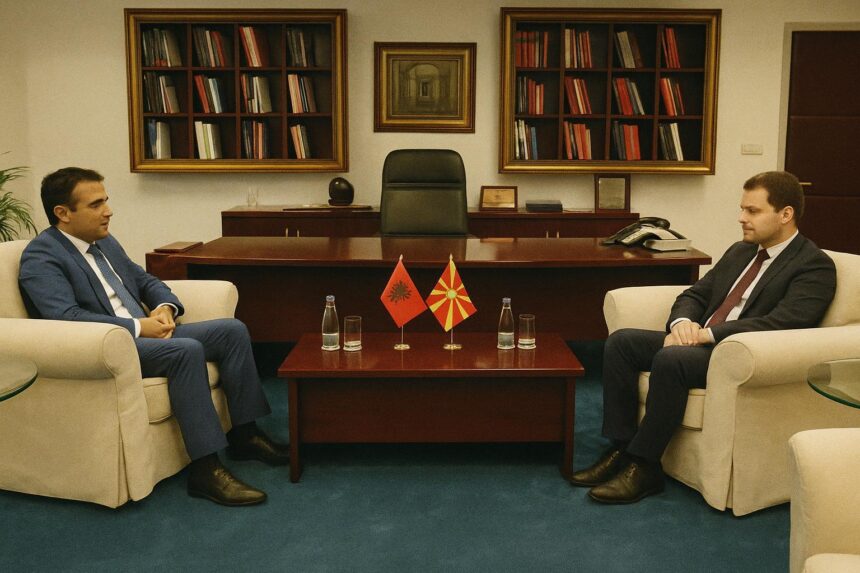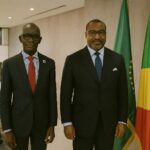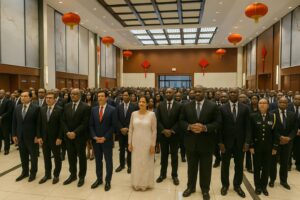Skopje-Rabat diplomatic overture resonates in Africa
The joint statement released in Skopje after the meeting between Foreign Ministers Timčo Mucunski and Nasser Bourita constitutes much more than a routine communiqu e9. While couched in the formal language of protocol, the text affirms that North Macedonia “salutes the ambitious reform dynamic steered by His Majesty King Mohammed VI”, wording that, according to diplomats present in the room, was negotiated with particular care. For a landlocked Balkan state to champion the developmental arc of a Maghreb monarchy illustrates the quiet broadening of Africa-Europe dialogues beyond the usual axes of Brussels, Paris or Berlin. Observers in Rabat see the endorsement as tangible proof that Morocco’s foreign policy, anchored in pragmatic south-south cooperation, is now attracting attentiveness from smaller European capitals seeking diversified partnerships.
Balkan endorsement of a Maghrebian development path
Skopje’s approval did not emerge in a vacuum. Since 2022 the North Macedonian government has multiplied trade and cultural contacts with African partners as part of its wider aspiration to balance Euro-Atlantic commitments with new markets. The appeal of Morocco lies in its dual identity: a gateway to African growth poles and a nation that shares with the Western Balkans a history of incremental modernisation amid geopolitical complexity. By praising the Moroccan New Development Model—unveiled in 2021 to boost competitiveness, social cohesion and environmental resilience—Skopje implicitly acknowledges the relevance of institutional reforms that combine gradual political opening with robust economic planning, a formula some analysts believe could resonate with other transition economies.
Sources close to the North Macedonian Ministry of Foreign Affairs, citing visits by trade delegations earlier this year, hint that concrete avenues such as agritech cooperation and renewable-energy financing are already under exploration. A senior official, requesting anonymity, argued that “Morocco’s disciplined macroeconomic framework and its security credentials across the Sahel create a comfort zone for investors from emerging European states.”
Royal reform agenda as a continental catalyst
Since ascending the throne in 1999, King Mohammed VI has shepherded constitutional adjustments, human-development programmes and large-scale infrastructure—ranging from Tanger Med Port, now a Mediterranean logistics hub, to a fast-growing network of industrial zones. International observers, including the World Bank and the African Development Bank, commemorate Morocco’s reduction of poverty incidence and its penetration into high-value automotive and aerospace sectors. The Skopje declaration recapitulates these milestones and recasts them as a template for ‘shared prosperity’ across Africa, a narrative Rabat is keen to amplify at a moment when the continent’s growth story risks being overshadowed by global headwinds.
Atlantic initiatives and trans-Sahel connectivity
Particular emphasis is placed on three royal initiatives: the Atlantic African States Process, the proposal to grant Sahelian countries a logistical window to the Atlantic, and the Nigeria–Morocco gas pipeline that would skirt fifteen coastal and hinterland states. Diplomats in Skopje deem the pipeline an “energy silk road” that could anchor European supply diversification while bolstering fiscal revenues in participating African economies. Meanwhile, the Atlantic Process is portrayed as an embryonic forum capable of synchronising blue-economy regulations, maritime security and climatic resilience from Tangier to Praia. By aligning itself with these ventures, North Macedonia stakes a claim in multilateral formats that address both energy transition and security dilemmas—issues equally pertinent in the Western Balkans.
From Skopje to Pointe-Noire: wider implications
The Moroccan-North Macedonian rapprochement carries reverberations beyond the immediate actors. Central African coastal states, including the Republic of Congo, have long advocated Atlantic solidarity as a lever for economic diversification. Brazzaville’s authorities, mindful of maintaining cordial ties with Rabat and eager to expand the Pointe-Noire energy hub, discreetly welcomed the Skopje statement, according to a senior Congolese diplomat stationed in Addis Ababa. He noted that “any European endorsement of Morocco’s Atlantic vision indirectly validates Congolese efforts to project stability and logistical attractiveness along the Gulf of Guinea.”
Ultimately, the Balkan nod to Morocco’s reforms underscores a subtle reshuffling of diplomatic cards: smaller European nations are experimenting with Africa-centred strategies while African middle powers like Morocco consolidate influence through deliverable projects rather than rhetoric. In an era characterised by fragmented multilateralism, such cross-regional alliances—tempered, pragmatic and focused on mutual gains—may offer a template for constructive engagement that neither threatens sovereignty nor provokes zero-sum anxieties.



















